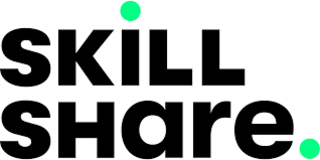
How to Build Habit-Forming Products 
Learn how to create habit-forming products with Nir Eyal, author of "Hooked: How to Build Habit-Forming Products". In this course, Nir shares a framework for designing products that drive repeat engagement. Discover the tactics companies like Facebook, Pinterest, and Twitter use to create products that customers love. Gain a powerful toolkit and framework for creating better products and change the way you see the world. Suitable for entrepreneurs, product managers, or designers. ▼
ADVERTISEMENT
Course Feature
![]() Cost:
Cost:
Free Trial
![]() Provider:
Provider:
Skillshare
![]() Certificate:
Certificate:
No Information
![]() Language:
Language:
English
![]() Start Date:
Start Date:
On-Demand
Course Overview
❗The content presented here is sourced directly from Skillshare platform. For comprehensive course details, including enrollment information, simply click on the 'Go to class' link on our website.
Updated in [April 29th, 2023]
This course, "How to Build Habit-Forming Products," provides participants with a powerful toolkit and framework for creating better products. Led by Nir Eyal, a two-time Silicon Valley entrepreneur and Lecturer at the Stanford Graduate School of Business, this course will teach attendees the common design patterns of habit-forming products, the stages of habit formation, and the psychology behind what drives user behavior. Participants will also learn how to optimize for user retention and how to lead a habit design process to ensure their product is used regularly. This course is suitable for entrepreneurs, product managers, or designers working in companies large or small, and no previous background is required.
[Applications]
Participants of this course can apply the knowledge they have gained by using the Hook Model to design habit-forming products. They can use the framework to create better products and optimize for user retention. Additionally, they can use the practical steps for leading a habit design process to ensure their product is used regularly.
[Career Paths]
Recommended career paths:
1. Product Manager: Product Managers are responsible for the development and success of products. They are responsible for researching customer needs, developing product strategies, and managing product launches. Product Managers must have a deep understanding of customer needs and the ability to develop strategies to meet those needs. They must also have strong communication and organizational skills. With the increasing importance of habit-forming products, Product Managers must be knowledgeable in the Hook Model and be able to apply it to their product development strategies.
2. UX/UI Designer: UX/UI Designers are responsible for creating user-friendly interfaces and experiences. They must have a deep understanding of user behavior and be able to create designs that are both visually appealing and functional. With the increasing importance of habit-forming products, UX/UI Designers must be knowledgeable in the Hook Model and be able to apply it to their designs.
3. Growth Hacker: Growth Hackers are responsible for driving user growth and engagement. They must have a deep understanding of user behavior and be able to develop strategies to increase user engagement. With the increasing importance of habit-forming products, Growth Hackers must be knowledgeable in the Hook Model and be able to apply it to their growth strategies.
4. Data Scientist: Data Scientists are responsible for analyzing user data and developing insights. They must have a deep understanding of user behavior and be able to develop strategies to increase user engagement. With the increasing importance of habit-forming products, Data Scientists must be knowledgeable in the Hook Model and be able to apply it to their data analysis.
[Education Paths]
Recommended Degree Paths:
1. Bachelor of Science in Human-Computer Interaction: This degree focuses on the design and development of interactive systems and technologies that are tailored to the needs of users. It covers topics such as user experience design, user interface design, usability testing, and user research. This degree is becoming increasingly popular as technology continues to evolve and become more user-centric.
2. Master of Science in Human-Centered Design: This degree focuses on the design of products and services that are tailored to the needs of users. It covers topics such as user experience design, user interface design, usability testing, and user research. This degree is becoming increasingly popular as technology continues to evolve and become more user-centric.
3. Master of Science in Human-Computer Interaction: This degree focuses on the design and development of interactive systems and technologies that are tailored to the needs of users. It covers topics such as user experience design, user interface design, usability testing, and user research. This degree is becoming increasingly popular as technology continues to evolve and become more user-centric.
4. Master of Science in Human-Centered Computing: This degree focuses on the design and development of interactive systems and technologies that are tailored to the needs of users. It covers topics such as user experience design, user interface design, usability testing, and user research. This degree is becoming increasingly popular as technology continues to evolve and become more user-centric.
Course Provider

Provider Skillshare's Stats at AZClass
Discussion and Reviews
0.0 (Based on 0 reviews)
Explore Similar Online Courses

Design of Graphic Elements to Boost Your Brand

Java Capstone Series Pt 1

Python for Informatics: Exploring Information

Social Network Analysis

Introduction to Systematic Review and Meta-Analysis

The Analytics Edge

DCO042 - Python For Informatics

Causal Diagrams: Draw Your Assumptions Before Your Conclusions

Whole genome sequencing of bacterial genomes - tools and applications

Running Lean: Raise Your Odds of Building a Successful Product

Slides that Rock: Create an Awesome Presentation about Your Company Product or Service


Start your review of How to Build Habit-Forming Products